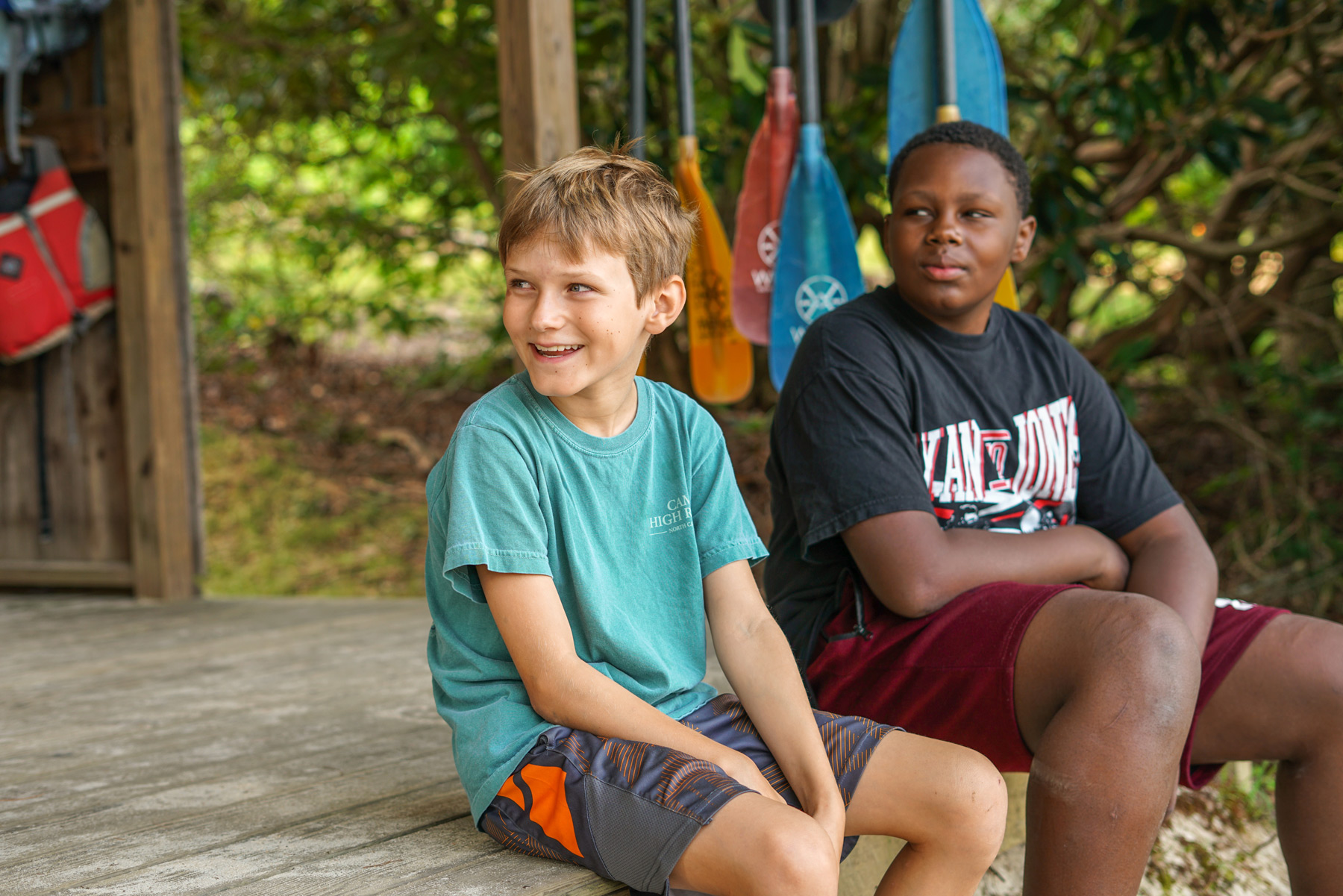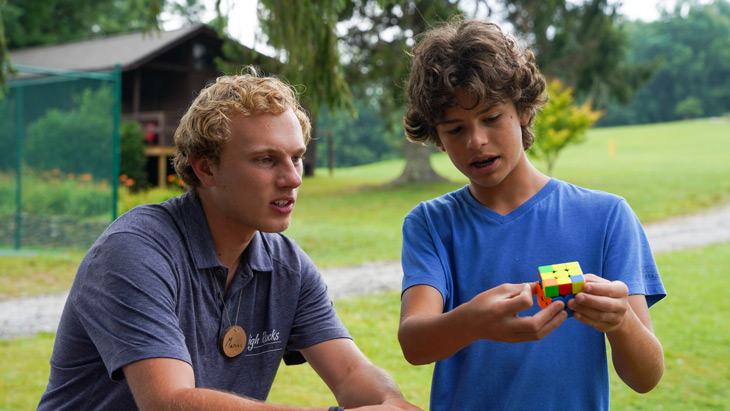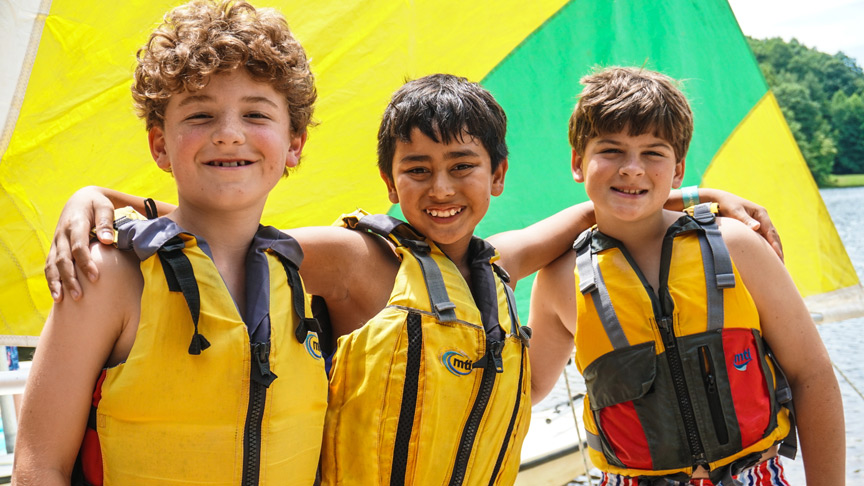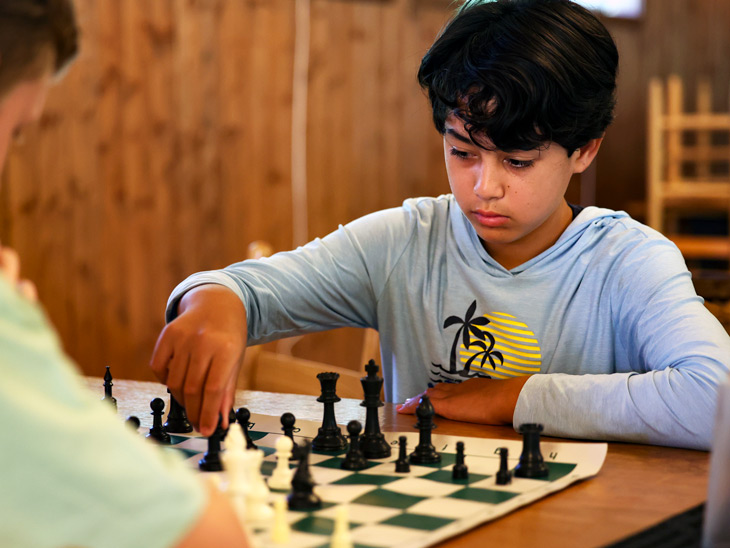Developing independence while at camp may mean overcoming a degree of homesickness for some children. Camp can take some time to adjust to. By following the advice below, you can help your son transition into camp successfully. The foundations of a great camp experience are often laid months before opening day.
Speak openly about homesickness. Mild homesickness is normal for campers. It typically lasts a few days during downtimes like rest hour or right before they fall asleep at night. You can share this with your camper.

As you talk about homesickness, let your son know that if he does experience homesickness, he will not be alone! Our staff are experts on homesickness and will be there ready to support. We typically start with getting your son more active and involved, helping them meet new friends, and again normalizing the feeling.
Even campers who have attended camp for years can get homesick or a little anxious on Opening Day. Let him know, he will have peers who understand how he is feeling.
Children look to their parents/family to understand and get guidance on how they should feel. Therefore, what you say about camp matters! We suggest keeping doubts to yourself and avoid dwelling on the fact you will miss him. Giving your camper your vote of confidence will mean a lot to him. Let him know you love him and you believe he can do it.



It can feel natural to say, “If you don’t like it, I’ll come get you” or “Just try it for a week, then I will pick you up.” These deals will typically set your son up for failure, even if they come from a place of trying to support your camper. If a camper believes they can be picked up at any time, often they do not try at camp. We ask families to steer clear of these deals with their campers as it will fuel their homesickness. Camps are experts in helping children, empowering them, and building self-confidence.
As you chat about homesickness with your son, we suggest creating a plan. If he gets homesick, what should he do? Help him plan his next steps – like talking to a counselor, writing a letter home, or finding an activity to get involved in.
Getting familiar with camp is a great way to alleviate some pre-camp nerves. We highly recommend joining us for a Father-Son Weekend, Family Camp Weekend, or scheduling a tour of camp. Meeting us and seeing all the facilities will help your son feel that he knows more about camp.
Avoid lingering at camp too long on opening day. We intentionally make this process short and sweet. Staying too long delays the transition to new surroundings and can add to your son’s anxiety level.

At some point in the session, you may receive a homesick letter. Don’t panic! These feelings are common. Often letters are written in the challenging downtimes at camp. Give us a call, we are happy to check on your son anytime.

High Rocks is an authorized Special Use Permit Holder by the Pisgah, Nantahala, and Sumter National Forests. • Privacy • Site Map • Camp High Rocks © 2025